Philosophy of Care: Your Care Team
- Details
- Last Updated: Wednesday, 22 May 2019 13:23
|
After you've found a clear vision for your child's care, discuss it with your child's pediatrician and talk about building your care team. It is critically important that you and your care team fully understand each other. Think of your child's healthcare providers as a part of the team, the pediatrician as the captain and you as the coach. If the pediatrician or any member of the team isn't comfortable with your philosophy of care, find a different provider! Remember, you know what is best for your child and your family. When the team communicates and works well together, the quality of the child's care and the family's experience is vastly improved. Create a Care PlanThere are several ways to get your ideas for a care plan together. NTSAD with Courageous Parents Network has a template for a care plan that could help you walk through this process. Download NTSAD Care Plan Template here. Download CPN's Care Plan Book here. Can I Change My Philosophy of Care?Absolutely! A philosophy of care is meant to guide you through difficult care decisions but isn't written in stone. This most frequently comes up when discussing feeding tubes (NG and G). Sometimes, when parents initially decide against a feeding tube, they find that decision too difficult to implement when their child's swallowing becomes a real issue. It is OK to adjust your philosophy of care; return to the initial process: get your child stable and comfortable; get your head and heart in a quiet place and listen.
Recommended ResourceCameron's Arc: Creating a Full Life a DVD & facilitators guide. Inspired by the lives and memories of first cousins Cameron and Hayden Lord (Tay-Sachs), the Lord Foundation partnered with the American Academy of Pediatrics (AAP) to produce the film Cameron's Arc: Creating a Full Life. Telling the Cameron Lord story, the DVD explores effective and rewarding parent-doctor communication across four critical junctures in the care of a terminally ill child: delivering the diagnosis, providing for anticipatory guidance, setting care goals and values, and transitioning at the end. If you would like to have this helpful resource, please contact the office at (617) 277-4463 or This email address is being protected from spambots. You need JavaScript enabled to view it..
|
Our pediatrician held everything together for us
I always want parents to know they have a choiceA pediatric palliative care nurse shares how the team typically knows a lot about the pros and cons of medical interventions and also how the diseases typically progress, which allows them to be proactive with the family while also reminding the parents that they truly have choices. It’s not about the child NEEDING this or NEEDING that. “There are risks and benefits to everything that we bring.” (The mom of two sons with mitochondrial disease and their pediatric palliative care nurse talk about how they work together to get her sons comfortable.)
|













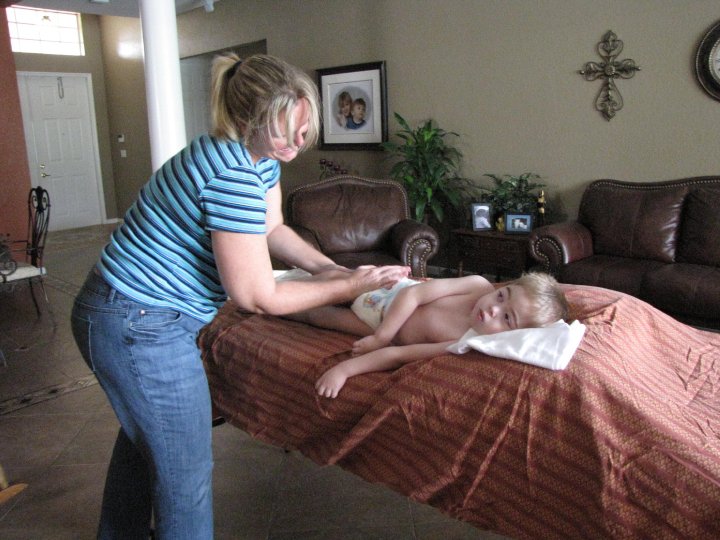 Massage Therapy is one of the oldest healing arts with records dating back 3,000 years with benefits for many symptoms associated with Tay-Sachs and related diseases.
Massage Therapy is one of the oldest healing arts with records dating back 3,000 years with benefits for many symptoms associated with Tay-Sachs and related diseases. 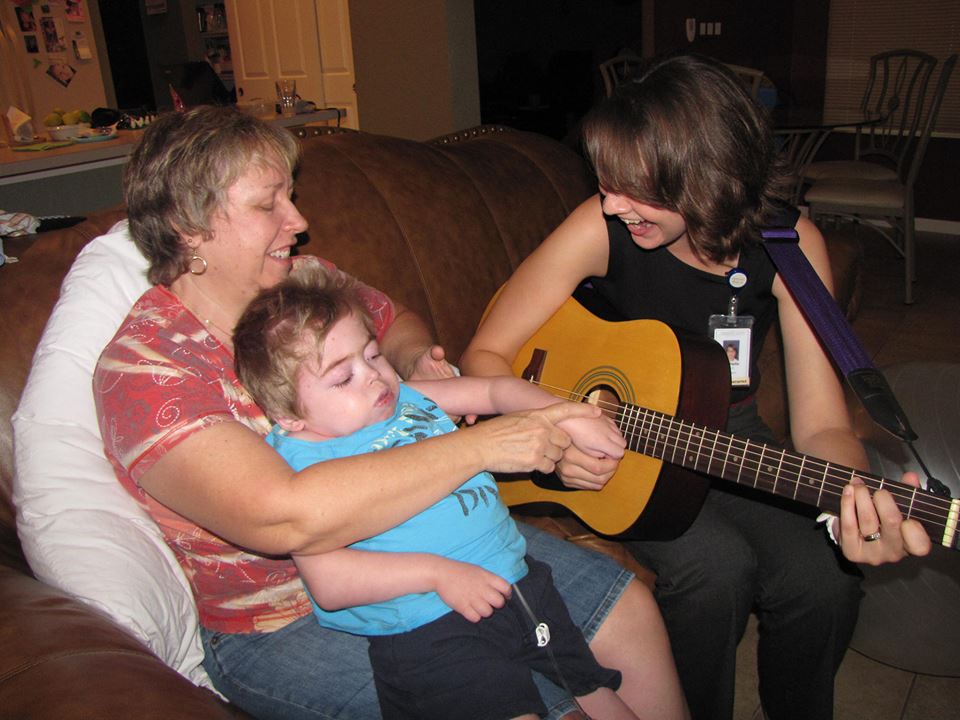 Music Therapy is an interpersonal process in which the therapist uses music and all of its facets-physical, emotional, mental, social, aesthetic, and spiritual-to help clients to improve or maintain their health and enrich quality of life.
Music Therapy is an interpersonal process in which the therapist uses music and all of its facets-physical, emotional, mental, social, aesthetic, and spiritual-to help clients to improve or maintain their health and enrich quality of life.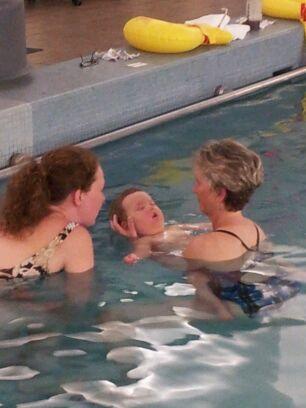 Water or Aquatic Therapy attempts to promote range of motion and improve overall health through the soothing affects of water. Heated or warmed pools are preferable.
Water or Aquatic Therapy attempts to promote range of motion and improve overall health through the soothing affects of water. Heated or warmed pools are preferable.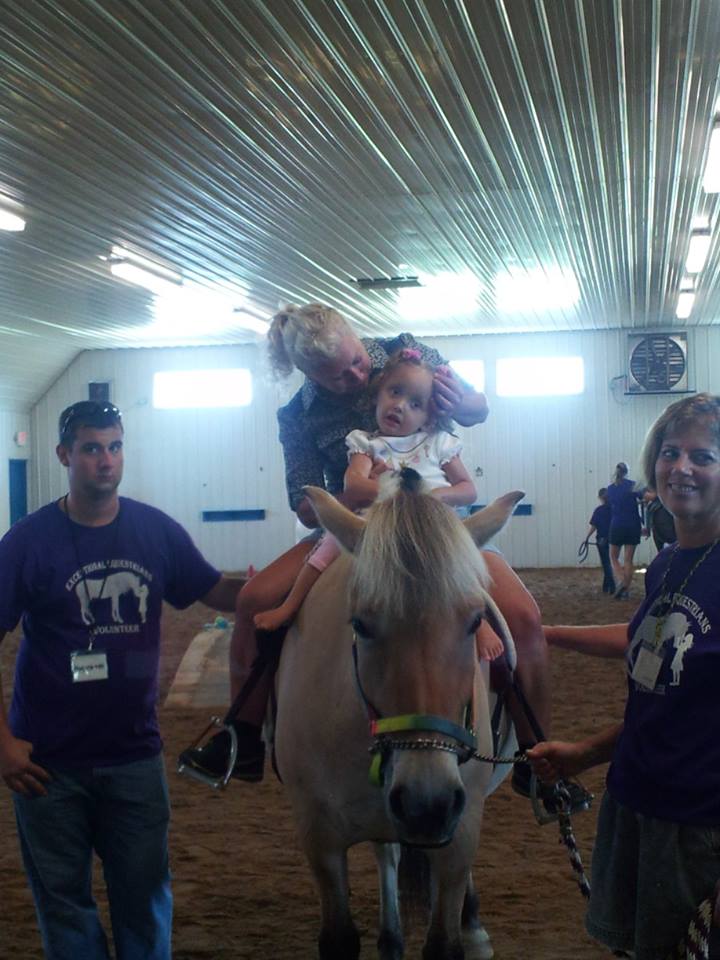 Hippotherapy is a physical, occupational, and speech-language therapy treatment strategy that utilizes horse movement as part of an integrated intervention program to achieve functional outcomes. The horse provides a dynamic base of support, making it an excellent tool for increasing trunk strength and control, balance, building overall postural strength and endurance, addressing weight bearing, and motor planning.
Hippotherapy is a physical, occupational, and speech-language therapy treatment strategy that utilizes horse movement as part of an integrated intervention program to achieve functional outcomes. The horse provides a dynamic base of support, making it an excellent tool for increasing trunk strength and control, balance, building overall postural strength and endurance, addressing weight bearing, and motor planning.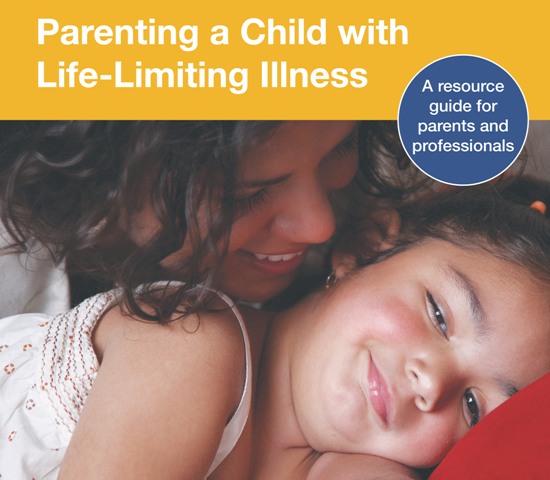 Caring for a child with a life-limiting illness can feel isolating and even alienating. And often friends and extended family don't really understand what the family experience is like. This lack of understanding can be a challenge for everyone: for the parents, who want help, support and understanding; for the friends and extended family who want to provide that help and support but don't know how and are afraid of doing or saying the wrong thing. To help with this, you can host a screening of the NTSAD film, Parenting a Child with Life-Limiting Illness, to give your friends and family a glimpse into your experiences.
Caring for a child with a life-limiting illness can feel isolating and even alienating. And often friends and extended family don't really understand what the family experience is like. This lack of understanding can be a challenge for everyone: for the parents, who want help, support and understanding; for the friends and extended family who want to provide that help and support but don't know how and are afraid of doing or saying the wrong thing. To help with this, you can host a screening of the NTSAD film, Parenting a Child with Life-Limiting Illness, to give your friends and family a glimpse into your experiences.